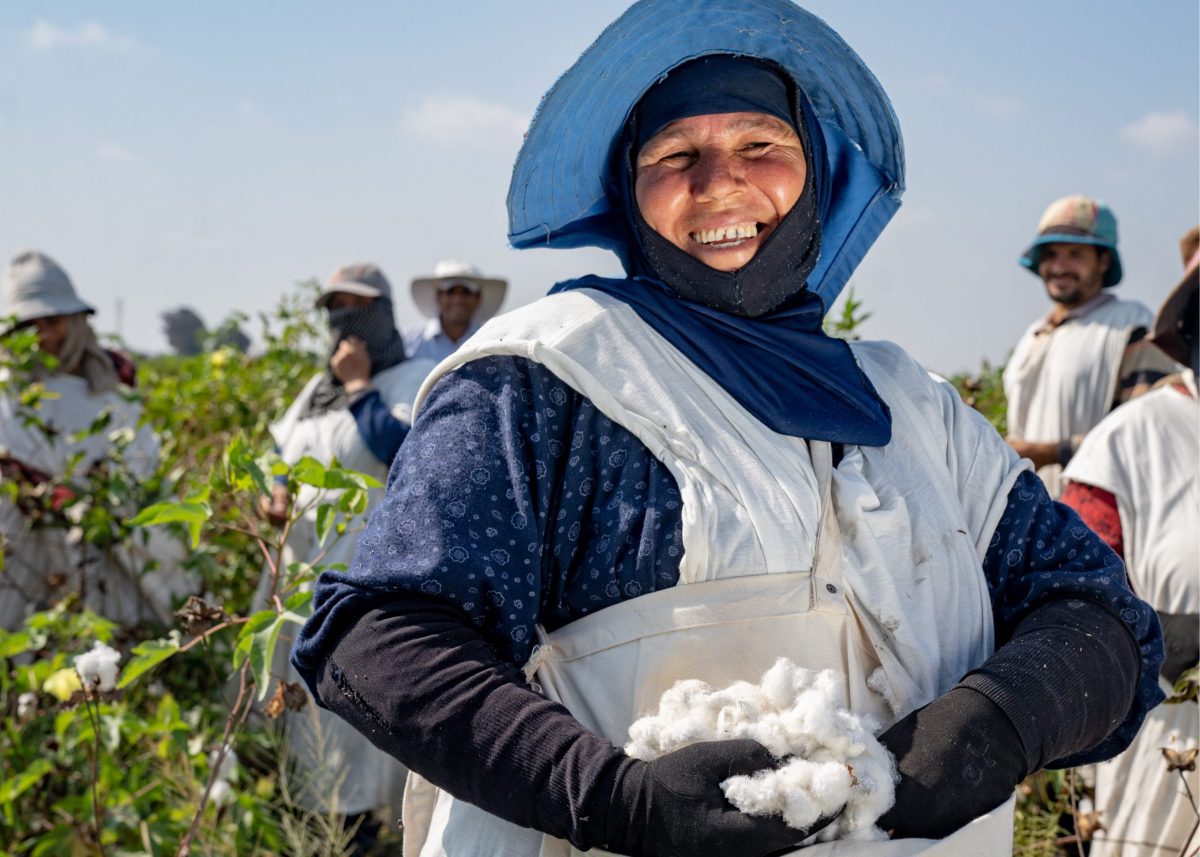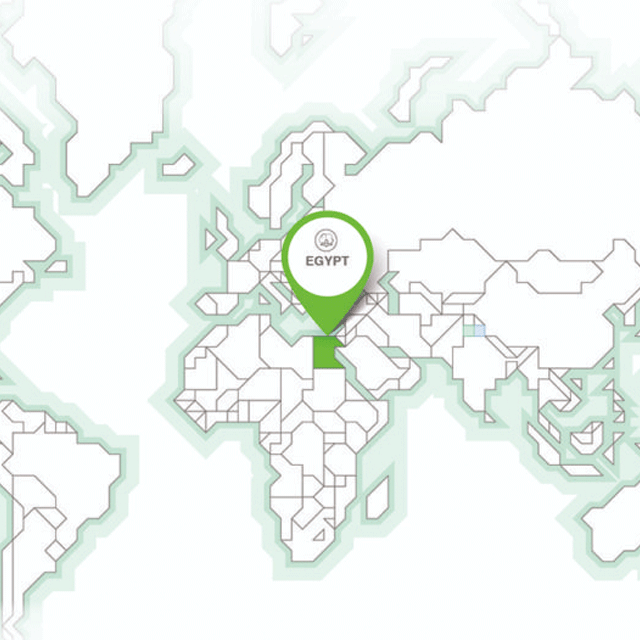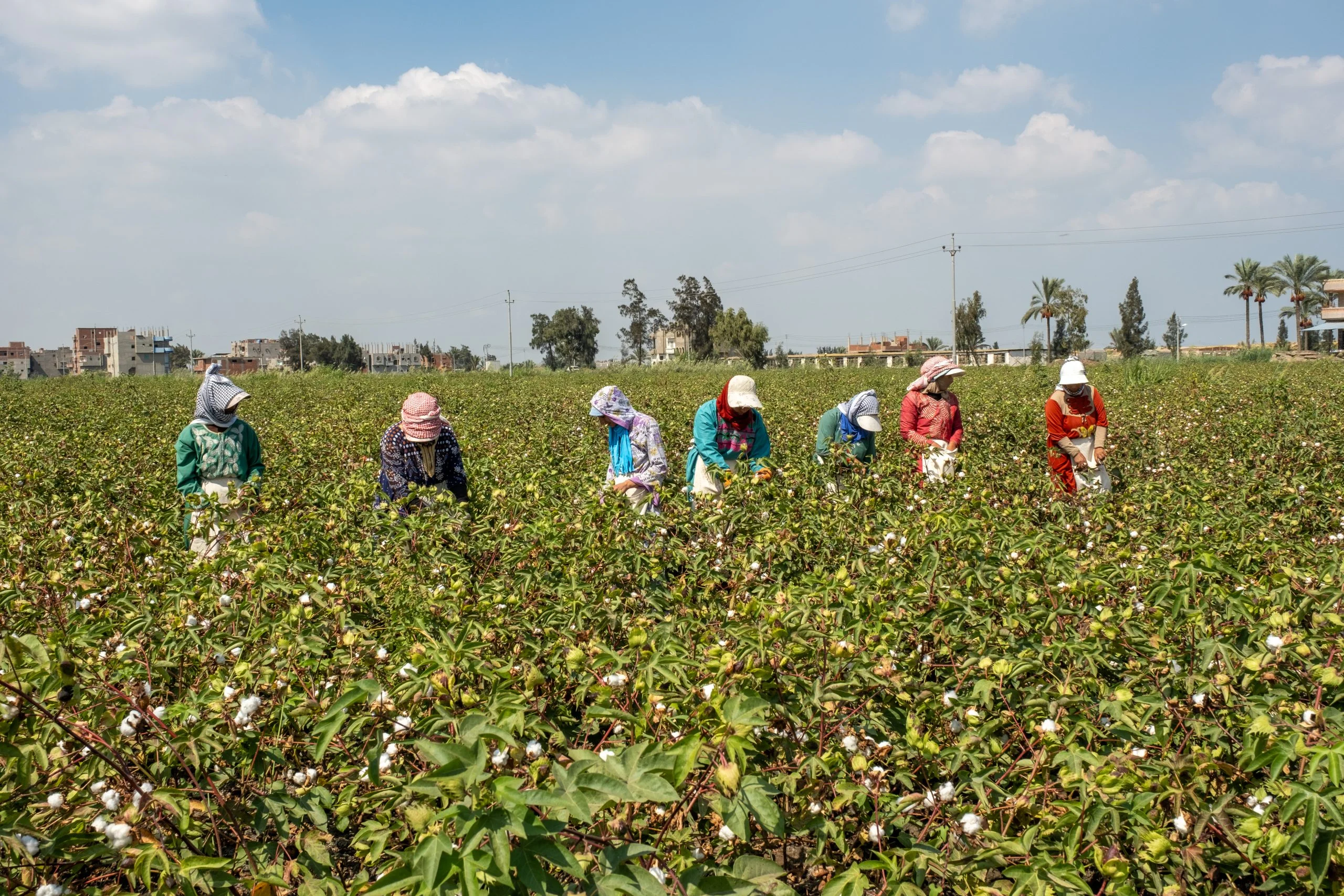

Egypt officially became a Better Cotton Initiative (BCI) programme country in 2020 as part of the country’s renewed effort to grow more sustainable cotton and improve conditions for Egyptian cotton farmers. This followed the successful completion of a pilot project in 2019.
BCI’s strategic partner in Egypt is Cotton Egypt Association (CEA), an organisation responsible for promoting and protecting Egyptian cotton worldwide. In July 2023, BCI and CEA announced a new strategic partnership to expand the BCI programme in Egypt.
Through this strategic partnership, both parties are working together to expand the implementation of sustainable farming techniques, provide training and support to farmers, and ensure compliance with rigorous environmental and social standards.
By adopting these practices, Egyptian cotton farmers will be supported in reducing water consumption, decreasing chemical pesticide usage, and improving soil health, ultimately leading to more sustainable and resilient cotton production.
This collaboration will further facilitate increased market access for Egyptian cotton products, ensuring a fair return for farmers and supporting the growth of the Egyptian textile industry.
Better Cotton Initiative Partners in Egypt
Together with CEA, the Cotton Research Institute and the United Nations Industrial Development Organisation (UNIDO), our three Programme Partners help to ensure that farmers gain access to the knowledge and tools they need to adopt more sustainable practices and improve their livelihoods.
- ALKAN
- El Ekhlas
- Modern Nile Cotton
Which regions grow BCI Cotton in Egypt?
BCI Cotton is currently cultivated in Kafr El Sheikh, Damietta, Behera and Beni Suef.
When is BCI Cotton grown in Egypt?
Cotton is sown from April to June and harvested from September to November, with slight differences from Upper Egypt to Lower Egypt (Nile Delta region).
Sustainability challenges
Maintaining fibre quality is a challenge in Egypt, where all cotton is picked by hand and fibre quality management is key in ensuring stable revenue for growers. Training farmers on-site to understand the best ways to keep cotton clean and uncontaminated during harvesting is important in preserving the quality of Egyptian cotton. Providing a greater understanding of the causes and negative impact of contamination on fibre quality, our work in Egypt supports the adoption of good harvesting practices, enabling farmers to sell more of their crops and improve their livelihoods.
Health and safety is also a major challenge central to our work in improving conditions for Egyptian cotton farmers. When applying pesticides to crops without the appropriate knowledge of using personal protective equipment (PPE), cotton farmers can expose themselves to unnecessary risks. With our Programme Partners, we provide practical field training on appropriate use and increase awareness on the importance of PPE during the application of pesticides to support farmers in controlling these risks.
Find out more about the outcomes farmers are experiencing by participating in the BCI programme in our latestAnnual Report.
“When BCI was launched, we learned how to cultivate the land and turn it into a source of income. This is important, because we have children, and it is our livelihood. They taught us how to cultivate the land, and how to optimise it.”
Get in touch
Contact our team via the contact form if you’d like to learn more, become a partner or you’re a farmer interested in farming BCI Cotton.











































